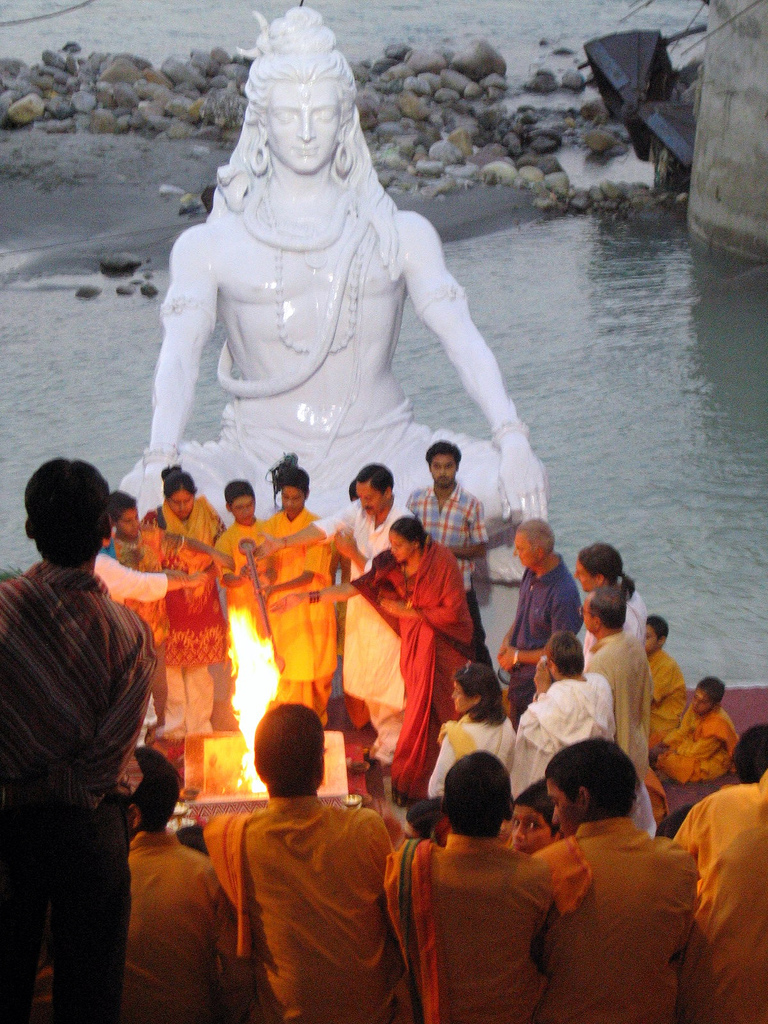|
Sri Sridhara Ayyaval Mutt
The Sri Sridhara Ayyaval Mutt is a Hindu mutt in the village of Thiruvisanallur. The mutt was established by a Saivite saint Sridhara Venkatesa Ayyaval Sridhara Venkatesa Dikshitar (13 August 1635–1720), popularly known as Ayyaval, was a Hindu saint and composer who lived in the village of Thiruvisanallur in the then Thanjavur Maratha kingdom. Ancestry and early life Sridhara Ayyaval w ... who lived and preached here in the late 17th century. The main duties of the mutt are to perpetuate the memory of Sridhara Ayyaval. The mutt also organizes philanthropic activities and holds pujas during major Hindu festivals. The mutts in Tamil Nadu started for the purpose of developing Hinduism and serving the public. More are less than they are performing the welfare activities in the society. Constructing a temple in Tamil Nadu (by stone) is so expensive. Likewise maintaining the old temple showing the ancient Tamil Nadu culture and style is also expensive. The mutts are partially ... [...More Info...] [...Related Items...] OR: [Wikipedia] [Google] [Baidu] |
Hindu
Hindus (; ) are people who religiously adhere to Hinduism.Jeffery D. Long (2007), A Vision for Hinduism, IB Tauris, , pages 35–37 Historically, the term has also been used as a geographical, cultural, and later religious identifier for people living in the Indian subcontinent. The term ''"Hindu"'' traces back to Old Persian which derived these names from the Sanskrit name ''Sindhu'' (सिन्धु ), referring to the river Indus. The Greek cognates of the same terms are "''Indus''" (for the river) and "''India''" (for the land of the river). The term "''Hindu''" also implied a geographic, ethnic or cultural identifier for people living in the Indian subcontinent around or beyond the Sindhu (Indus) River. By the 16th century CE, the term began to refer to residents of the subcontinent who were not Turkic or Muslims. Hindoo is an archaic spelling variant, whose use today is considered derogatory. The historical development of Hindu self-identity within the local In ... [...More Info...] [...Related Items...] OR: [Wikipedia] [Google] [Baidu] |
Matha
A ''matha'' (; sa, मठ, ), also written as ''math'', ''muth'', ''mutth'', ''mutt'', or ''mut'', is a Sanskrit word that means 'institute or college', and it also refers to a monastery in Hinduism.Matha Encyclopædia Britannica Online 2009 An alternative term for such a monastery is ''adheenam''. The earliest epigraphical evidence for ''mathas'' related to Hindu-temples comes from the 7th to 10th century CE. The most famous ''mathas'' or ''peethams'', which came to be affiliated with the Advaita tradition in the 14th century, are Govardhanmaṭha Pīṭhaṃ at |
Thiruvisanallur
Thiruvisanallur also called Thiruvisalur (formerly known as Shahajirajapuram) is a village in the Thanjavur district of Tamil Nadu. The village is known for the Sivayoginathar Temple, a Hindu Temple dedicated to Lord Siva. The Tirundudevankudi Karkadeswarar Temple is located nearby. The history of Thiruvisanallur can be traced to the time of the Medieval Cholas who established the village as Vembarur or Solamarthanda chaturvedimangalam. There are inscriptions dating to the time of Raja Raja Chola I. The Thanjavur Maratha king Shahuji I endowed Thiruvisanallur to forty-six Brahmins as a ''brahmadeya'' in the year 1695. Following this endowment, the name of the village was changed to Shahajirajapuram. At about this time, a Hindu saint by name Sridhara Venkatesa Ayyaval a companion of the Shankaracharya Bodhendra Saraswathi settled down in Thiruvisanallur and founded the Sri Sridhara Ayyaval Mutt. Sivayoginathar Temple & Clock The Sivayoginathar Temple is old and is believed ... [...More Info...] [...Related Items...] OR: [Wikipedia] [Google] [Baidu] |
Saivite
Shaivism (; sa, शैवसम्प्रदायः, Śaivasampradāyaḥ) is one of the major Hindu traditions, which worships Shiva as the Supreme Being. One of the largest Hindu denominations, it incorporates many sub-traditions ranging from devotional dualistic theism such as Shaiva Siddhanta to yoga-orientated monistic non-theism such as Kashmiri Shaivism.Ganesh Tagare (2002), The Pratyabhijñā Philosophy, Motilal Banarsidass, , pages 16–19 It considers both the Vedas and the Agama texts as important sources of theology.Mariasusai Dhavamony (1999), Hindu Spirituality, Gregorian University and Biblical Press, , pages 31–34 with footnotesMark Dyczkowski (1989), The Canon of the Śaivāgama, Motilal Banarsidass, , pages 43–44 Shaivism developed as an amalgam of pre-Vedic religions and traditions derived from the southern Tamil Shaiva Siddhanta traditions and philosophies, which were assimilated in the non-Vedic Shiva-tradition. In the process of Sanskritisation ... [...More Info...] [...Related Items...] OR: [Wikipedia] [Google] [Baidu] |
Sridhara Venkatesa Ayyaval
Sridhara Venkatesa Dikshitar (13 August 1635–1720), popularly known as Ayyaval, was a Hindu saint and composer who lived in the village of Thiruvisanallur in the then Thanjavur Maratha kingdom. Ancestry and early life Sridhara Ayyaval was born in Mysore and was the son of one Sridhara Lingarayar. Ayyaval's father was the Diwan of he Mysore kingdom. When Ayyaval, a staunch devotee of the Hindu god Shiva, was offered the post of Diwan upon his father's death, he rejected the offer and instead, chose to embark on a pilgrimage of the Saivite temples of the Cauvery Delta region. Events On Ayyaval's arrival in Thanjavur, he was offered all assistance and respect by Shahuji, the then ruler of the Thanjavur Maratha kingdom. Shortly afterwards, he restored a Brahmin dead of snakebite to life and thus acquired a reputation as a miracle-worker. He was attracted to the Mahalingeswarar shrine at Thiruvidaimarudur and set up his house at the neighbouring village of Thiruvisainall ... [...More Info...] [...Related Items...] OR: [Wikipedia] [Google] [Baidu] |
.jpg)

.jpg)
